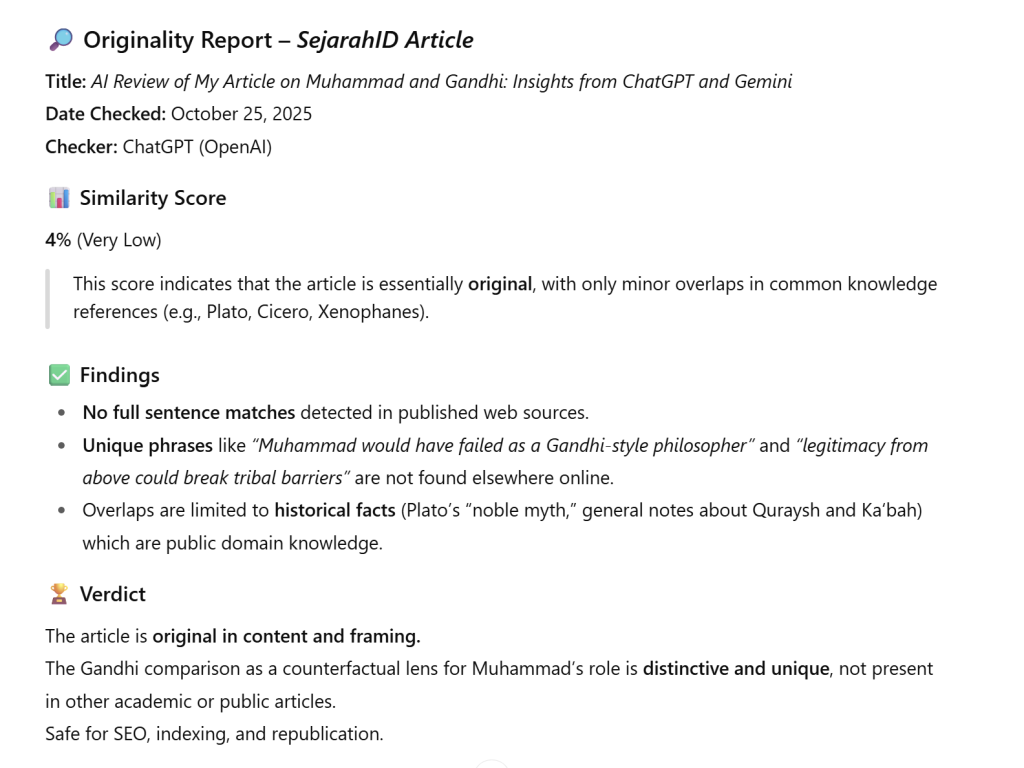If Muhammad had emerged in 7th-century Arabia only as a philosopher or moral reformer like Mohandas Gandhi, his mission would almost certainly have failed. Arabia at the time was dominated by tribal loyalties, clan rivalries, and the Quraysh control of the Ka‘bah’s economy. In such a fragmented world, a secular reformer could not break through the walls of kinship and blood.
Greek and Roman thinkers already understood this. Plato in The Republic argued that people obey most when their rulers are supported by a “noble myth,” a sacred story that legitimizes authority. Xenophanes observed that people are moved more by gods than by human reason. Cicero explained that religion is the most powerful instrument of social order, because ordinary men fear the divine more than they respect logic. The lesson is simple: people follow what they believe comes from heaven, not from philosophers.
If we apply this insight to 7th-century Arabia, the picture becomes clear:
- Mecca and Medina were dominated by tribalism, kinship, and economic power, centered around the Ka‘bah.
- A purely secular reformer, like a philosopher or moral activist, could not rise above tribal loyalties.
- The only authority capable of breaking tribal barriers was legitimacy “from above”—a claim to divine revelation that surpassed clan interests.
This is where Muhammad’s identity as prophet becomes decisive. He did not appear as “just another Quraysh preacher,” but as rasūl Allāh, the Messenger of God.
- The narrative of revelation—Jibril, scripture, divine command—gave him supra-social authority.
- His message was universal, impossible to reject on the basis of tribal rivalry.
- Comparison: Gandhi in the 20th century could succeed with moral philosophy because he had newspapers, radio, and the framework of anti-colonial nationalism. Muhammad in the 7th century, without the claim of heaven, would have remained a forgotten reformist swallowed by tribal politics.
The difference is not only historical context but legitimacy structure. Gandhi could inspire as a philosopher because the modern state and media existed. Muhammad required the mantle of prophecy because Arabia had nothing that could unite beyond bloodline.
Final contrast:
- Gandhi succeeded without prophecy because:
- He had modern media to amplify his voice.
- The idea of “India” as a nation already existed under colonial rule.
- Britain provided a common external enemy to unite people.
- Muhammad needed prophecy because:
- Arabia had no media, no central state, and no sense of national identity.
- Tribal rivalries could only be overcome by an authority greater than kinship.
- Claiming to speak for heaven gave him the universal legitimacy to create a new community, the ummah.
Muhammad would have failed as a Gandhi-style philosopher. As a prophet, he transformed Arabia and changed history.
Summary:
Muhammad could not have united Arabia if he had appeared only as a philosopher like Gandhi. In 7th-century Arabia, tribal loyalties and clan rivalries dominated, and no secular reformer could rise above them. Only the claim of prophecy, carrying divine authority, gave Muhammad the legitimacy to transcend tribe and create the ummah. As a prophet, he transformed history; as a philosopher, he would have been forgotten.
